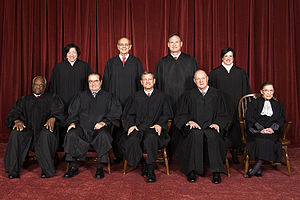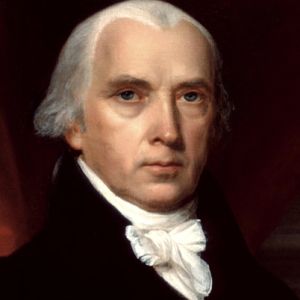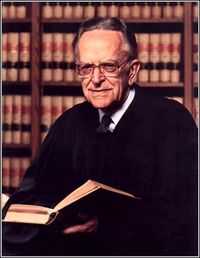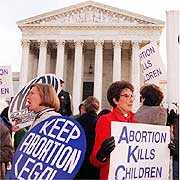Related Topics
Philadelphia Legal Scene
The American legal profession grew up in this town, creating institutions and traditions that set the style for everyone else. Boston, New York and Washington have lots of influential lawyers, but Philadelphia shapes the legal profession.
Robert H.Bork Upsets A Century of Antitrust Law
According to the late Robert H. Bork, it ought to be fairly easy to identify price-fixing, because legitimate cases that harm the consumer by price manipulation aren't common, or may not even exist. With this, Bork convinced the judiciary to abandon a century of contrary belief while still a young law professor, thus establishing his own reputation with Ronald Reagan. He was appointed Solicitor General by Richard Nixon, unfortunately thus embroiling himself in Nixon's impeachment.
Let's Give the Supreme Court Some Help
For

|
| Supreme Court, 2017 |
all the current wrangling about abortion, it continues to be implicit that the U. S. Supreme Court has a problem, which the Court needs to settle. But in fact, the Court didn't create the whole problem. The Court doesn't need to solve all of it.
First of all, privacy. That word doesn't appear in the Constitution, but surely no one is opposed to making privacy a right. Even

|
| James Madison |
James Madison wasn't opposed to the idea so much as he wanted to avoid cluttering the Bill of Rights with unnecessary detail. Unfortunately, circumstances have now changed enough to make it useful to be explicit about a strictly defined right to privacy. Since no one is truly opposed, what harm would there be in passing a bill in both the House and the Senate, and then having the required number of states ratify it? Once both sides got over the suspicion that somebody was trying to put something over on them, it should be possible to design simple clear language that creates and defines the right to privacy -- and avoids the temptation for somebody to insert some sly wording that does in fact put something over on somebody else. At the very least, creating a written right to privacy by following the prescribed path for amendment should dispel the idea that the abortion issue is part of an elaborate effort to undermine the Constitution.
By itself, this hypothetical amendment would seem like a rebuke to

|
| Justice Blackmun |
Justice Blackmun and the rest of the Supreme Court. It needs something else added in order to look like a compromise, which it is. So, what's proposed further is a declared presumption that state laws written before 1890 which forbid the performance of abortion were written with the intent of protecting the health of the mother.
That seems to be historical fact. There was a forty-year window of time between the invention of anesthesia, which made abortion easy to do, and Lister's invention of aseptic technique,

|
| anti-abortion |
which make abortion safe. The anti-abortion crusade, led by the American Medical Association, took place during that window of time. The AMA was alarmed by the medical disasters it was witnessing and urged legal measures to curtail it. When the safety issue was resolved by Pasteur and his followers, the AMA greatly softened its position. It is now surely true that more mothers are protected by abortion than harmed by it. If the courts have a role in untangling this mess, it is to recognize that the original intent of the anti-abortion laws has become lost by ignoring the changed scientific situation.
Well, where would this leave us? It should get privacy out of the issue, by making it clear that the right to privacy in the new amendment is not to be stretched to legitimize
just anything that people want to keep private. Murder, for example, is something everyone might well wish to hide but could hardly be legitimized by a right to privacy. Nor is defecation, which everyone wishes to keep private, to be prohibited just for that reason. Abortion could be constitutionally established as something people have a right to keep private, but abortion -- other than to protect the health of the mother -- is not legitimized or de-legitimized by saying so.
Does teasing out the sophistries then settle the question of abortion? No, but it would reduce the problem to its essence. By the process of teasing away the irrelevance, abortion then becomes a process which is safe, easy to do, and legitimate whenever it protects the health of the mother. Whether to prohibit it when it lacks those features would be a decision for the individual state governments, so long as the threat of public exposure is not used as an enforcement weapon, as every reader of Hawthorne knows it has been.
Perhaps we can even imagine the day when stripped of emotional demons, abortion can be viewed as a rather cumbersome contraceptive method, currently resorted to far more frequently than is sensible.
Originally published: Thursday, June 22, 2006; most-recently modified: Wednesday, May 22, 2019